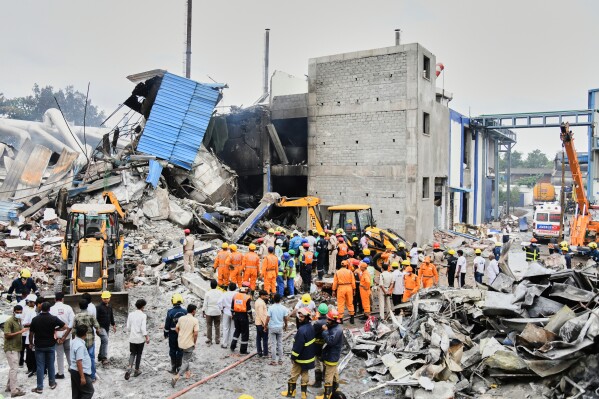Costly lapses: On the Hyderabad pharma unit blast
Pharma plants should have a high level of safety culture
Microcrystalline Cellulose (MCC) is chemically inert. The human body does not absorb it. The skin does not react to it. But it has several useful physical properties such as being a binder and texturiser, which is why it has varied applications in the pharmaceutical, food, cosmetics and other industries. MCC can add weight to a drug and facilitate the active ingredients to function effectively while making the drug conform to weight specifications. On Monday (June 30, 2025), however, the pharma unit of Sigachi Industries in Hyderabad, which makes this benign substance, was the scene of a lethal accident, with the toll rising to 36 on Tuesday (July 1, 2025). The making of this safe substance does involve risky processes, which can, however, be safe if appropriate procedures are followed by trained personnel. Most of the dead are young, poor, migrant workers from northern and eastern India who often lack social support. The Telangana government has announced an ex gratia of ₹1 crore and efforts must be made to ensure it reaches the families. It does seem that the response of mitigation agencies was timely and is ongoing.
The blast, however, puts the spotlight back on the pharma manufacturing industry, which has been a foreign exchange earner for India. Such accidents have been frequent, sadly. In August last year, there was a major accident at a pharma unit in Anakapalli near Visakhapatnam. Months earlier, in April, there was another accident in Hyderabad. Officials suspect that Monday’s accident happened due to equipment malfunction, likely due to poor maintenance. It could have led to an abnormal build-up of temperature, leading to the blast. Key aspects of operating such hazardous units safely are that HAZOP, or a form of process hazard analysis, should be carried out by competent and knowledgeable staff. The data that individual units generate, that would indicate any abnormality, should be seamlessly integrated into operation control, again manned by competent staff. Operators should be trained, constantly aware of safety issues and implement steps that can ensure safety. While these are recommended practices, what is crucial is that such plants should have a high level of safety culture. Operators, managers and workers should be conscious of the ever-present risks. In this era of heightened scrutiny of industrial accidents by proactive media, manufacturing units are expected to conform to global norms especially regarding safety. Major slip-ups, such as this accident in Hyderabad, are likely to have a negative bearing on this key source of trade for India.
